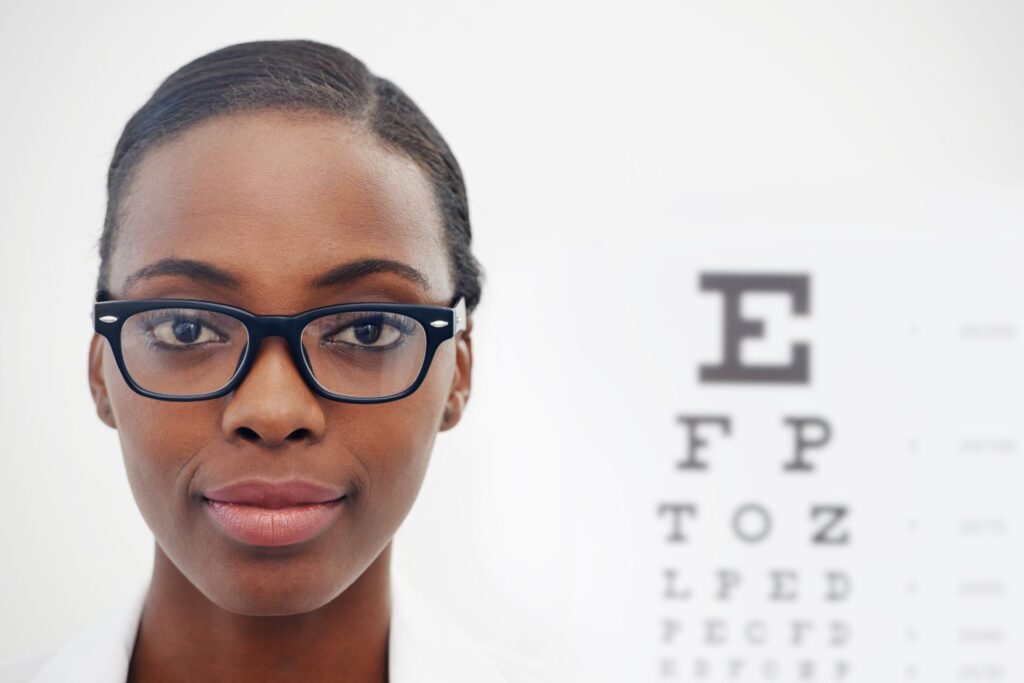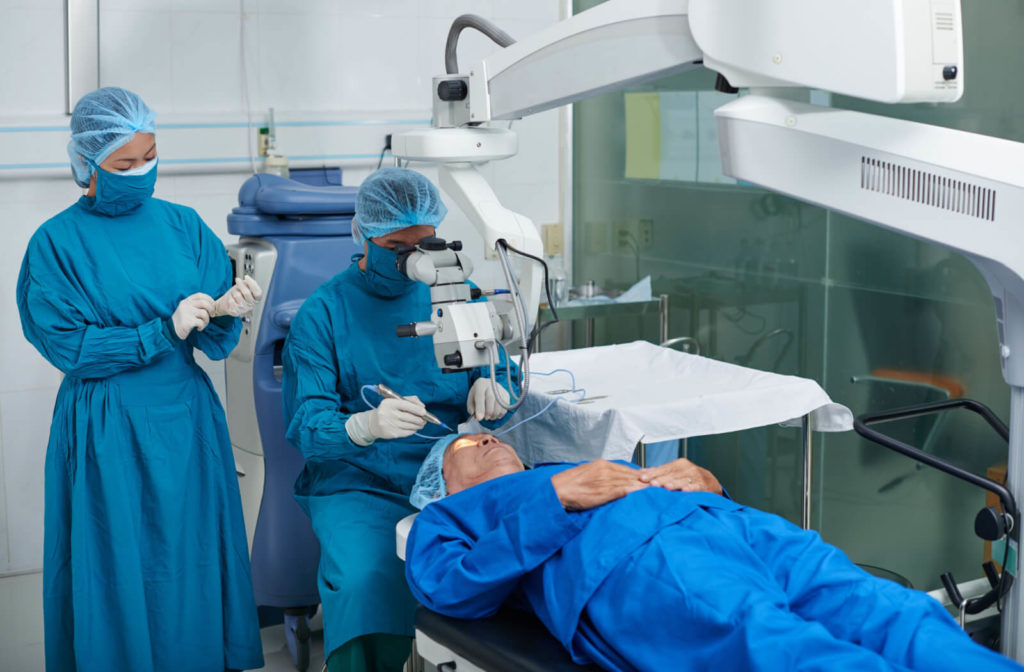The Value of Normal Eye Tests: Insights From a Skilled Eye Physician
Regular eye examinations serve as a vital part of healthcare that expands beyond simple vision modification. A seasoned eye medical professional can provide insights into how these examinations not only spot usual eye conditions however also reveal underlying health concerns that might or else go undetected.
Benefits of Regular Eye Exams
Although many people may ignore the significance of regular eye tests, these evaluations play a critical role in preserving total wellness and well-being. Routine eye evaluations offer not only to evaluate vision yet also to identify very early indications of systemic health concerns, including diabetic issues and hypertension. By identifying these conditions at their inception, patients can get prompt interventions, dramatically improving long-term results.
Furthermore, eye exams can assist in monitoring existing health and wellness problems, making sure that any kind of modifications in vision or eye health and wellness are without delay addressed (optometrist). The analyses allow for individualized referrals relating to eyeglasses, way of living changes, and protective steps against potential eye strain or damages
Beyond physical wellness, the benefits of routine eye tests reach boosting quality of life. Boosted vision facilitates much better efficiency in everyday tasks, from checking out to driving, therefore contributing to higher self-reliance and safety and security. Inevitably, focusing on eye examinations promotes a proactive technique to health monitoring, encouraging individuals to organize their health. Normal examinations are a crucial component of a thorough health care method, guaranteeing that both vision and overall health are maintained throughout life.
Common Eye Conditions Detected
Normal eye examinations are crucial in identifying a selection of typical eye conditions that can substantially affect vision and overall wellness. Among one of the most widespread conditions recognized throughout these evaluations are refractive mistakes, including myopia (nearsightedness), hyperopia (farsightedness), and astigmatism. These problems commonly manifest as blurred vision and can be conveniently remedied with prescription glasses or contact lenses.
Furthermore, cataracts, which create clouding of the lens, are regularly identified in older grownups. This problem can cause decreased vision and needs medical treatment for resolution. One more usual problem is glaucoma, a group of eye illness that damage the optic nerve, typically connected to boosted intraocular stress. Early detection is vital as it can prevent irreversible vision loss.
Age-related macular deterioration (AMD) is one more significant problem that impacts main vision, specifically in people over 50. Ultimately, diabetic retinopathy, a complication of diabetic issues, can cause extreme vision problems if not checked regularly. Via detailed eye exams, these problems can be determined early, enabling prompt monitoring and treatment to maintain vision and enhance quality of life.
Significance of Very Early Discovery
Very early detection of eye conditions plays an important function in protecting vision and avoiding significant wellness difficulties. Many eye illness, such as glaucoma, diabetic retinopathy, and age-related macular deterioration, can proceed silently without noticeable symptoms in their onset. By the time signs and symptoms materialize, permanent damage may have taken place, a knockout post causing irreversible vision loss.
Routine eye exams help with early diagnosis, enabling timely intervention and therapy. As an example, treating raised intraocular stress can protect against the onset of glaucoma, while managing blood sugar level degrees can considerably lower the danger of diabetic retinopathy. Additionally, problems like cataracts can be properly managed with surgical intervention when identified early.

Exactly How Often Should You See?
Establishing the frequency of eye examinations is vital for maintaining optimal eye health and vision. The basic referral for grownups is to have a thorough eye test every one to 2 years, depending upon specific danger factors and age. For individuals matured 18 to 60, an examination every 2 years is typically sufficient if no vision troubles are existing. Nonetheless, those over 60 must consider annual tests, as the risk of age-related conditions boosts substantially.
People with particular danger elements, such as a family members history of eye illness, diabetic issues, or existing vision problems, might call for even more regular analyses. Children should have their first eye test at 6 months of age, adhered to by anchor additional exams at age 3 and prior to going into institution. Routine exams during childhood years are critical as vision can alter swiftly during developing years.
Inevitably, the frequency of visits need to be customized per individual's situations, including lifestyle, work-related dangers, and any kind of pre-existing eye problems. Consulting with an eye treatment expert can give personalized referrals, ensuring that your eye health and wellness is consistently monitored and kept.
Tips for Your Eye Test
Getting ready for your eye exam can boost the efficiency of the browse through and guarantee an extensive evaluation of your eye wellness. To optimize your time with the eye doctor, it is important to gather pertinent info before your visit. Start by assembling a list of any type of drugs you are currently taking, consisting of over-the-counter medications and supplements, as these can impact eye wellness.
In addition, document any symptoms you have experienced, such as obscured vision, pain, or headaches. This details will help your eye medical professional in detecting prospective issues. If you put on glasses or get in touch with lenses, bring them along, also if you don't use them consistently. This will aid the medical professional examine any kind of adjustments in your vision.
It is also advantageous to have a family members background of eye problems at hand, as genetic variables can contribute to your eye wellness. Lastly, think about arranging your exam for a while when you are much less rushed, enabling you to ask concerns and review your concerns extensively. By preparing sufficiently, you ensure that your eye look at here now examination is efficient and that your eye medical professional has all the essential details to provide the most effective treatment possible.

Verdict
Normal eye exams play a critical duty in keeping both vision and total health. They facilitate the very early detection of different eye problems and systemic concerns, enabling timely treatment. The recommendations for frequency highlight the relevance of proactive treatment. Implementing basic primary pointers can improve the evaluation experience. Ultimately, prioritizing thorough eye examinations contributes considerably to the conservation of vision and the enhancement of lifestyle, underscoring the requirement of routine eye treatment in preventative medical care methods.
Normal eye examinations are instrumental in identifying a range of common eye conditions that can substantially influence vision and total health.Determining the frequency of eye tests is crucial for keeping optimal eye health and vision.Preparing for your eye examination can improve the efficiency of the see and guarantee an extensive evaluation of your eye health and wellness (optometrist). By preparing appropriately, you make sure that your eye examination is productive and that your eye medical professional has all the needed details to give the best treatment possible
Eventually, prioritizing detailed eye analyses adds significantly to the conservation of vision and the enhancement of quality of life, underscoring the need of routine eye treatment in preventive medical care approaches.
Comments on “Locate an Optometrist Near Me for Your Eye Health and wellness”